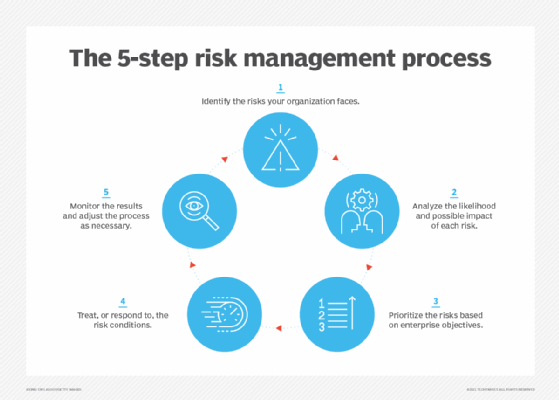The Significance of Recognizing the Relevance of Risk Management in Numerous Industries
The Core Principle of Risk Management and Its Purpose
Risk Management, the foundation of many markets, rests on the identification, analysis, and mitigation of unpredictabilities in an organization atmosphere. It is an important method that enables companies to safeguard their possessions, credibility, and general survival. By appropriately determining possible risks, services can develop strategies to either protect against these threats from happening or reduce their effect. The assessment process includes examining the probability and potential severity of these threats. The mitigation process entails developing techniques to lower their possible impact as soon as threats have actually been determined and reviewed. This procedure is ongoing and intermittent, making sure that organizations are planned for the ever-changing nature of Risk in different markets. The primary function, hence, is to foster durability among unpredictabilities.
Benefits of Applying Risk Management in Company Procedures

Unveiling the Function of Risk Management in Different Industries
While every sector faces its one-of-a-kind set of dangers, the implementation of Risk Management techniques continues to be a common denominator in their search of sustainability and growth. In the medical care sector, Risk Management involves guaranteeing person safety and data defense, while in financing, it involves mitigating investment dangers and making certain regulatory compliance (importance of risk management). Building firms concentrate on employee safety, job delays, and spending plan overruns. In the technology sector, business mitigate cybersecurity risks and innovation obsolescence. Inevitably, the duty of Risk Management throughout markets is to recognize, examine, and minimize threats. It is an essential component of calculated preparation, making it possible for companies to protect their possessions, maximize possibilities, and attain their purposes.
Real-life Situation Studies Showing Effective Risk Management
To understand the relevance of Risk Management in these lots of industries, one can look to a number of real-life circumstances that highlight the successful application of these procedures. Toyota, upload the 2011 quake in Japan, modified its supply chain Management to minimize interruption risks. These instances show exactly how sectors, discovering from dilemmas, effectively used Risk Management methods to minimize future risks.
Future Fads and Developments in Risk Management Methods
Cybersecurity, once an outer worry, has catapulted to the forefront of Risk Management, with techniques focusing on action, discovery, and prevention. The combination of ESG (Environmental, Social, Governance) variables right into Risk Management Visit Website is one more growing trend, mirroring the enhancing acknowledgment of the role that environmental and social threats play in company sustainability. Hence, the future of Risk Management lies in the fusion of sophisticated modern technology, cutting-edge techniques, and a holistic technique.
Verdict
To visit this web-site conclude, understanding the relevance of Risk Management throughout a range of industries is crucial for their long life and prosperity. Customized techniques can assist reduce possible threats, secure possessions, and foster stakeholder trust fund. In addition, proactive decision-making help in regulatory conformity and maximizes source use. Inevitably, successful Risk Management contributes to a lot more resistant and sustainable services, highlighting the importance of this practice in today's highly competitive and vibrant organization environment.
While every sector confronts its unique collection of risks, the application of Risk Management techniques remains a common in their quest of sustainability and development. In the medical care sector, Risk Management requires making sure patient security and information protection, while in financing, it includes Full Article mitigating investment risks and making certain regulative compliance. Ultimately, the duty of Risk Management throughout sectors is to recognize, examine, and reduce risks. These instances demonstrate how industries, learning from crises, successfully used Risk Management methods to minimize future risks.

Comments on “How the Importance of Risk Management Facilitates Successful Project Outcomes”